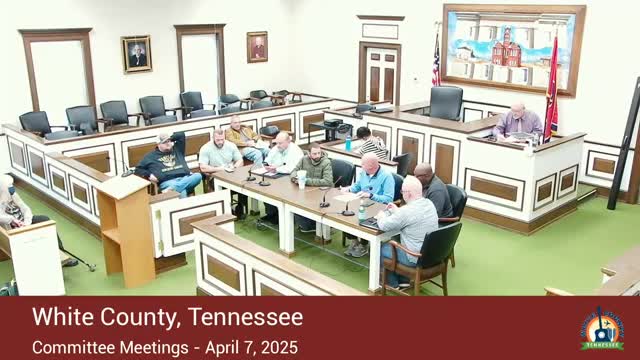Steering committee sends resolution supporting license‑plate readers to full court after sheriff explains network and privacy limits
Get AI-powered insights, summaries, and transcripts
Subscribe
Summary
Steering Committee B voted to forward a resolution acknowledging the White County Sheriff’s Office’s use of license‑plate‑reader (LPR) technology and to authorize permitting steps; motion carried with a contingency that the county attorney review the document.
Steering Committee B voted to send a resolution to full court acknowledging and supporting the White County Sheriff’s Office’s acquisition and use of license‑plate‑reader (LPR) equipment and to authorize staff to pursue the related permits. The committee added a review by the county attorney and the motion carried by voice vote.
Officer Thijs and other sheriff’s office representatives described the technology and why the resolution is needed: the county previously purchased a demo vehicle fitted with an LPR system and, for some planned camera placements (including on state roads), state permits require clearer legislative documentation. The patrol technology was said to help locate stolen vehicles, wanted persons, BOLOs and Amber Alerts by matching plate reads against NCIC and other law‑enforcement lists.
The sheriff’s office also explained the county would join a larger network that allows agencies to query historical reads across jurisdictions; the sheriff’s representative said the system does not automatically publicize all plate reads and that an authorized investigative query and reason (for example, a case number) is required to run searches. The sheriff noted several neighboring jurisdictions already operate LPR systems and that the department plans to use the Flock network for camera hardware and data connectivity.
Commissioner Dakota White made the motion and Commissioner Robert McCormick seconded. The committee voted to forward the resolution to full court with a stipulation that the county attorney review the draft language before final submission.
